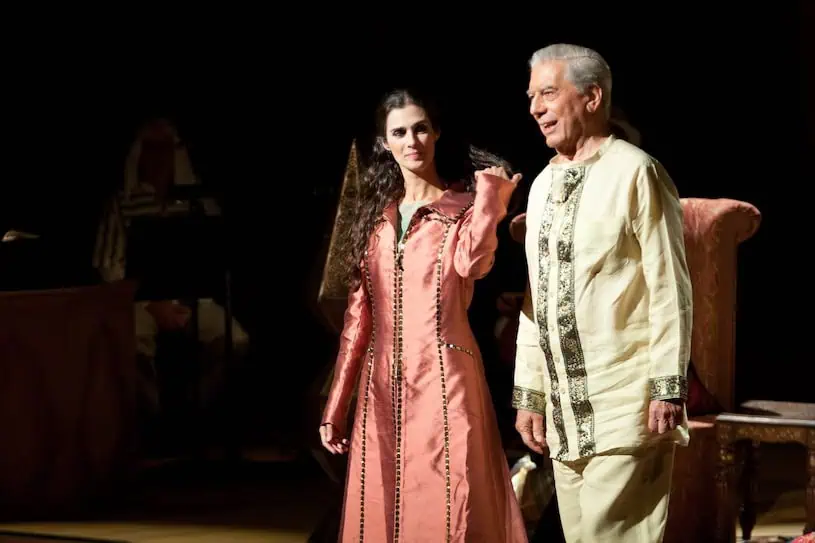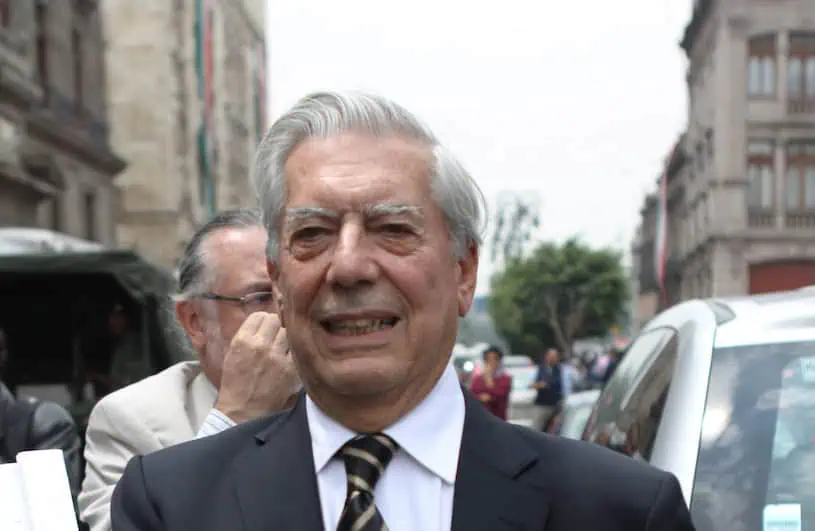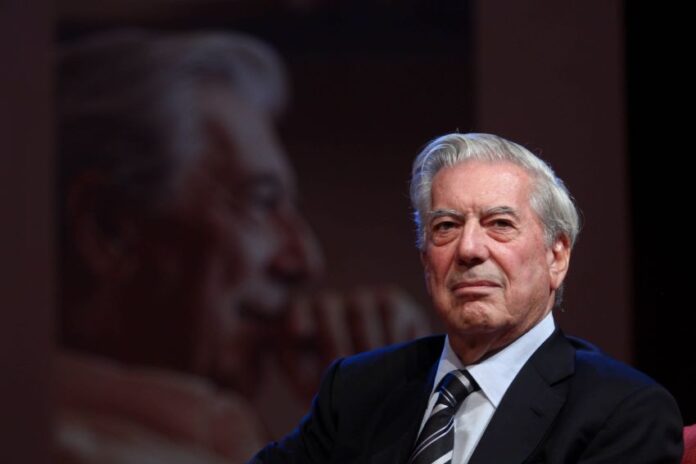Mario Vargas Llosa, the Peruvian Nobel Prize–winning novelist and outspoken critic of Latin American authoritarianism who famously labeled Mexico a “perfect dictatorship,” died Sunday in Lima.
His son Álvaro reported that the writer, who had turned 89 on March 28, died peacefully surrounded by family.

Vargas Llosa was a prolific author and essayist with such celebrated novels as 1963’s “La ciudad y los perros” (published in English as “The Time of the Hero”) and 1969’s “Conversación en la catedral” (“Conversation in the Cathedral”).
In winning the 2010 Nobel Prize in Literature for his body of work, Vargas Llosa was recognized by the committee “for his cartography of structures of power and his trenchant images of the individual’s resistance, revolt and defeat.”
With novels that dissected authoritarianism, societal violence, war and political corruption, he was a leading voice of the emergent Latin American Boom literary movement of 50-60 years ago.
Mexicophiles and bibliophiles might recall Vargas Llosa as a frequent guest at the Guadalajara International Book Fair (FIS), the largest literary event in the Spanish-speaking world.
He opened the 2014 literary program with a dialogue with Israeli writer David Grossman, presented his novel “Cinco esquinas” (“Five Corners”) and was honored for his 80th birthday in 2016, and appeared for a final time at age 83 in 2019 to present his novel “Tiempos recios” (“Harsh Times”).
But Vargas Llosa’s main relationship with Mexico was defined by his 1990 declaration that its one-party rule under the Institutional Revolutionary Party (PRI) constituted a “perfect dictatorship.”

Decades later, he criticized then-President Andrés Manuel López Obrador for “sliding toward authoritarianism,” accusing him of undermining press freedom through daily attacks on journalists during his mañanera press conferences.
“I don’t think that’s the role of a president; it violates that role,” Vargas Llosa said in 2021.
López Obrador dismissed the novelist’s critiques as conservative rhetoric, asserting the writer misunderstood Mexico’s realities.
But AMLO also took aim at the president and founder of the Guadalajara book fair (FIS), Raúl Padilla, for inviting writers and intellectuals whom the president felt were opponents of his administration — citing Vargas Llosa by name.
Undeterred, an 87-year-old Vargas Llosa opened a book fair bearing his name, the Mario Vargas Llosa Biennial, in 2023 by saying that “populism, demagoguery, statism, intolerance and ideological extremism are causing much damage” in Latin America.
Those comments — which Vargas Llosa claimed were about his native Peru and not Mexico — occurred in Guadalajara, where the every-other-year event is usually held, although later this year it will take place in Spain for the first time.
That festival, in conjunction with the FIS and other entities, also hands out the Mario Vargas Llosa Biennial Novel Prize — a US $100,000 award considered one of the most prestigious in the Spanish-speaking world.
Mexican President Claudia Sheinbaum acknowledged Vargas Llosa’s death in her Monday morning press conference, stating, “Beyond political differences, we must recognize the greatness of a writer. Our condolences go to his family.”
Former President Felipe Calderón honored him as a “universal voice” for renowned novels such as 1981’s “La guerra del fin del mundo” (“The War of the End of the World”) and 2000’s “La fiesta del chivo” (“The Feast of the Goat”), while novelist Xavier Velasco recalled his wit and social consciousness.
In his later years, the author opposed inclusive language reforms, calling efforts to replace gendered terms like todos with todxs “a stupidity by modern feminists.” He argued Spanish’s grammatical structure was “natural” and warned against “denaturalizing language.”
Born in Arequipa, Peru, in 1936, Vargas Llosa spent decades in Europe before returning to Peru, where he ran unsuccessfully for president in 1990. He reportedly spent his final months revisiting Lima landmarks featured in his novels.
With reports from Infobae, Milenio and Associated Press
